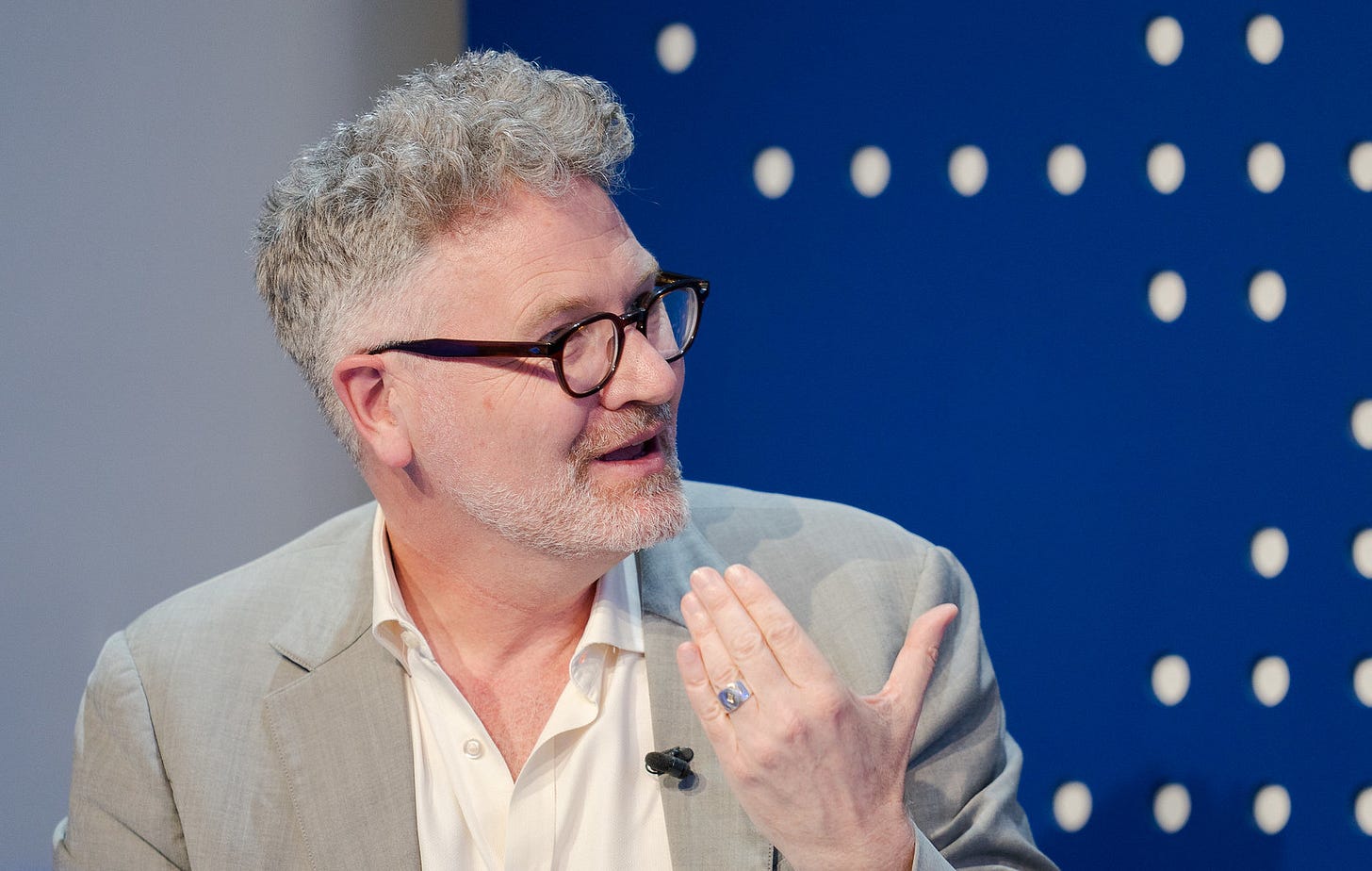Adam Tooze On Writing And Productivity
Three key ideas from one of the most productive writers today.
This is one of an occasional series of posts about writing and Substack. It hasn't been emailed to my regular subscribers.
Regular readers of The Chip Letter will know that I’m a fan of historian Adam Tooze. His eclectic Chartbook newsletter was the inspiration for the Chip Letter Links midweek edition of this newsletter.
Tooze is incredibly productive. In addition to his newsletter, he is a regular contributor to several major publications, has written several very large books and co-hosts a podcast. All this alongside his ‘day job’ as a history professor at Columbia University in New York.
So it was fascinating to hear him respond to the question on the recent `unplugged` live edition of his ‘Ones and Tooze’ podcast., from co-host Cameron Abadi, as to how he manages to be so productive.
The answer was three things:
Owning the writing process as something you want to do.
Finding a point where you stop.
Writing every day.
Now the advice to make space to write every day has become a commonplace. The other two are less often talked about and struck a chord with me.
The hardest thing for me is when I’ve written two thousand words of a post and I know that it doesn’t yet work and I’m not clear how to make it work.
This is where owning the writing process and knowing when to stop are so valuable.
Being committed to a writing process means that you know what to do next and you have reasonable confidence that it will take you to a piece of writing that you’re happy with.
Moreover knowing when to stop and having this as part of your process gives you confidence that your revision process won’t go on forever.
I don’t think either of these ideas is particularly easy to do in practice. But I think that knowing that a writer who produces such high-quality work in volume finds them important is helpful in one’s own resolve to use them.
The podcast is linked here and the relevant section starts at about 28 minutes in. The whole podcast is interesting and often fun.
Photo Credit
https://www.flickr.com/photos/worldeconomicforum/52098156638
https://creativecommons.org/licenses/by-nc-sa/2.0/



“I don’t think either of these ideas is particularly easy to do in practice. But I think that knowing that a writer who produces such high-quality work in volume finds them important is helpful in one’s own resolve to use them.” — You have a way with words, @Babbage 🙂